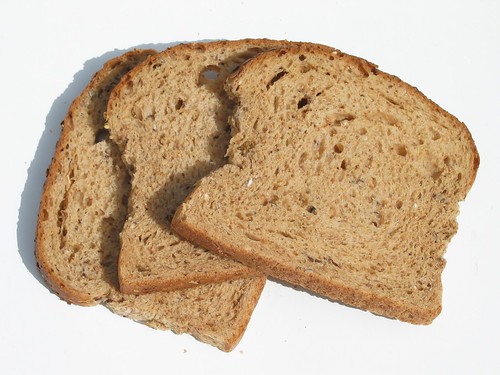We Win
Dr. Eades has an excellent analysis of two diet studies on his blog today. A lot of it repeats what I’ve said about low-carb, weight loss, and cholesterol; but he has put it in handy, easy-to-read charts.
To summarize: over six months, a low-carb diet beat high-fiber, low-fat, and low-GI diets in every way: weight loss, blood sugar levels, the important cholesterol numbers and ratios (the changes in HDL and triglycerides are especially striking, but no surprise to someone who’s been talking to low-carbers for years), and even blood pressure. We win.
The focus on low-GI (glycemic index) carbs was a way to try to have our cake and eat it too—as long as the cake was made from whole grains. Low-GI carbs are basically what we used to call “complex carbs”: long-chain starches that take longer to break down in the body, so they don’t spike blood sugar as drastically. For diabetics, this affects how much of what type of insulin to take, and can mean the difference between diabetic coma or just poor health.
But in the long run, all non-fiber carbs are broken down into simple sugars and absorbed, no matter how complex they were when you ate them. (And they break down faster than people used to think. Dr. Bernstein points out that if you chew up some complex carbs and spit them out onto a blood sugar testing strip, it will show the presence of sugar; so they’re starting to break down as soon as saliva touches them.) Low-GI carbs may not spike blood sugar as much in the immediate term as high-GI carbs, but they’ll keep it high longer while they’re being broken down, and the total amount of insulin that has to be produced to handle them will be about the same. Since excess insulin triggers most of these other problems like high triglycerides, low-GI carbs don’t help much there, as the charts show. Lowering carbs, regardless of type, does help. A carb is a carb is a carb, for the most part.
Anyway, if you’re interested, don’t take my word for it; go read the whole thing. Low-carb studies this clear have been scarce, since no one wants to fund anything that could be said to encourage the eating of fat. Usually they claim to be low-carb while having people eat a fairly high level of carbs like 150g/day, or they combine low-carb with calorie restriction or something else that confuses the issue. This is the first time I’ve seen one that compared low-carb to other diets this honestly over this long a time period, and the results are very clear.
If you enjoyed this article, why not rate it and share it with your friends on Twitter, Facebook, or StumbleUpon?
loading...

